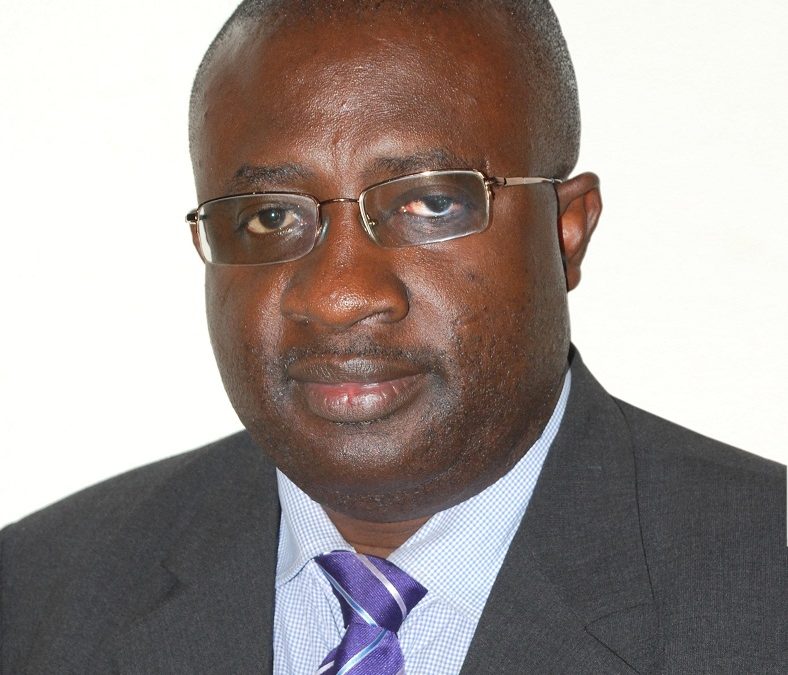MINERALS COMMISSION AND PARTNERS SPEARHEAD PARTICIPATORY REFORM IN THE ARTISANAL AND SMALL-SCALE MINING SECTOR
While accounting for an estimated 34% of Ghana’s gold production in 2014 and the livelihoods of approximately 1 million Ghanaians (and a total 3 million dependents), the artisanal and small-scale mining (ASM) sector is best known for its major environmental and social challenges. However, a group of national business and community leaders believe that the ASM sector can be improved to become an inclusive, responsible, rights-based engine for growth in Ghana.
“What we need is a major shift. A shift from an ASM sector driven by poverty and a lack of options, to ASM operations that are run like efficient businesses with adequate access to finance.We need to shift from an insecure and dangerous sector to one that enjoys secure rights and provides safe and decent jobs to mineworkers and the local community,” says Dr Toni Aubynn, Chief Executive Officer of the Minerals Commission. “We believe that this is possible. But we will need to shift policy and attitudes, as well as a great deal of collaboration and goodwill.”
This participatory sector reform process started last January in Tarkwa, where a group of leaders decided to guide a process of transformation in the ASM sector, following an “action dialogue” that brought together 60 representatives from across Ghana. The event was convened by the NGO Friends of the Nation, with support from the UK-based International Institute for Environment and Development’s ASM dialogues’ programme. Ghana was the first country chosen for an ASM dialogue because of the growing economic and livelihoods’ importance of the sector, and the commitment of ASM leaders and institutions to improving it.
“Miners must play a leading part in this sector reform. We have to commit ourselves to responsible mining practices so we can have the respect of Ghanaian society. Many small-scale miners are already working hard to operate responsibly and we want many more to do the same,” says Amina Tahiru, small-scale miner and coordinator of women in mining at the Ghana National Association of Small-Scale Miners (GNASSM).
The group of leaders, known as the Learning and Leadership Group, has developed an agenda for action that includes demonstrating the “business case” for responsible ASM, improving practices within the ASM sector, and building support across Ghanaian institutions for ASM as a force for positive growth and equity in the country.
“We must not forget the difficult circumstances that women and children face in ASM. There are many vulnerable communities that need to be empowered,”adds Tahiru.
NOTES TO EDITORS
- The members of the multi-stakeholder Learning and Leadership Group are:
- Nii Adjetey Kofi-Mensah, ASM Africa Network (ASMAN)
- Richard Amankwah, University of Mines and Technology, Tarkwa
- Godwin Armah, GNASSM
- Toni Aubynn, Ghana Minerals Commission
- Collins Oppong, Ministry of Food and Agriculture, Ghana
- Georgette Sakyi-Addo, mining equipment supplier and chair of Women in Mining, Ghana
- Robert Siaw, Goldfields Ghana Ltd.
- Amina Tahiru, small-scale miner and GNASSM
- The agenda for change (“road map”) developed by the Learning and Leadership Group following the dialogue event is available upon request.
- The dialogue process started last summer and the dialogue itself started by visiting artisanal and small-scale mine sites and was followed by two days of workshop discussions with experts from Ghana Minerals Commission, government departments, artisanal and small-scale miners, large mining companies, academia and NGOs.
- IIED’s global programme of action dialogues for ASM supports national dialogues in ASM countries across the world. IIED aims to foster multi-stakeholder collaboration through dialogue, which leads to better understanding, roles and relations between the key sector stakeholders. As global convenor, IIED works to influence and share findings in key international forums to ensure that international policymaking is informed by local realities. iied.org
- Friends of the Nation is a Ghanaian NGO that works on natural resources governance and management through research and advocacy on sustainable development. Through their work they have engaged with and supported different stakeholders, including communities, NGOs, government and industry. fonghana.org
- Photographs are available upon request.

